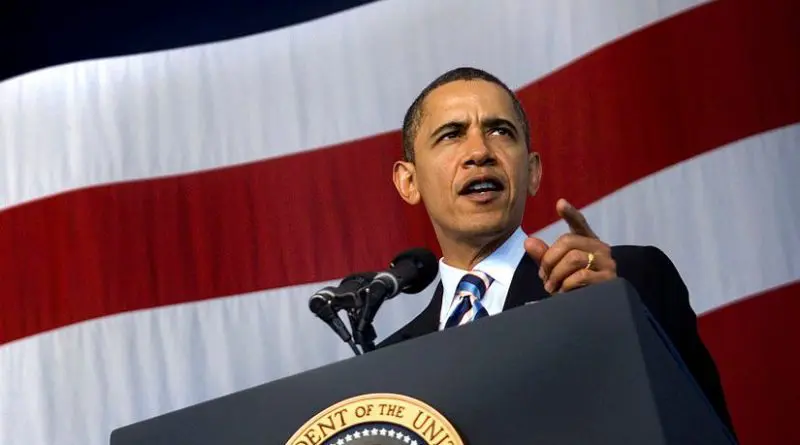Third Term Of Obama If Democrats Win In November? – OpEd
By JTW
By Mehmet Yegin and Furkan Zengin*
As the Super Tuesday and Saturday passed the number of nomination scenarios has narrowed down, for the Democrat Party Hillary Clinton, former Secretary of State, have strengthened her grip on nomination. Despite decreasing chances of nomination, Vermont Senator Bernie Sanders still did not left the race and even continues to win at some states.
For a possible Democrat Party win in November 2016, there are still two possibilities. Thus, foreign policy approaches of both Sanders and Clinton will be evaluated in this piece. How different will they be from Obama’s term?
What would be expected from Sanders?
There is a striking difference on the comments on two democrat party hopefuls. Whereas, the ones with Clinton generally are critique examine of her positions, the ones with Sanders generally are advisory due to absence of stated positions. Sanders is mainly repeating his vote record on Iraq War (2003) where he was against and Clinton was for the war. Other than his righteousness in Iraq Sanders has not elaborated the details of his prospective foreign policy understanding. Vermont Senator carefully and intentionally keeps away from speaking on foreign policy in order to to avoid gaffes or creating weak spots that Clinton may use against him as the most experienced candidate -among both parties- on foreign policy matters. He rather focuses on domestic matters where he has the stronger messages to deliver.
Sanders’ domestic policy approach as a “democratic socialist” though hints on his foreign policy. His projection of a welfare state in Scandinavian model at whatever level he achieves necessitates less spending on military. This definitely puts certain limits for the US activities in overseas. Besides, he does not seem to be interested in upholding a strong and assertive US leadership in the world. Additionally, it is hard to imagine Sanders term with drone operations along with heavy use of covert operations similar to Obama administration. In the end, Sanders is the one once argued for abolishing the CIA. His stance on foreign policy may be expected less active than of Obama administration.
The possible presidency of Clinton
The record of Hillary Clinton as a Secretary of State and its differences from tenure of her successor gives us an idea about her possible differences in tone from the Obama administration. Yet, we may not directly refer since the last word belonged to the President. The first and foremost difference is more inclination to use force than Obama. This is evident in her role for convincing him for bigger military roles in Afghanistan, in Libya and her advocacy of deploying a no-fly zone in Syria.
The second difference is Clinton would pursue an approach for more based on US leadership. Obama has preferred the role of leading from behind and encouraged the US allies and regional actors to take more responsibility in their region. Clinton would follow a multilateral approach as well but US in the pioneering role. The assumed role of US in Clinton’s approach crystallized in her words of “We (the US) are not Denmark.” The third issue is a more idealistic line of argument. Hillary Clinton would more vocal in human rights, women rights and democracy issues. Under a possible Clinton administration, a more assertive approach to both Russia and China may be expected. A stronger confrontation with Russia and rise of US’ military activity in the South China Sea and more vocal administration labor, women and human rights would not be surprising.
In short, keeping the main lines Clinton would be more assertive in foreign policy than Obama. Applying these differences to the Middle East, Clinton would not go for regime change operations like in Iraq and pursue burden sharing with allies and partners in possible crises. She would not push for reversal of Iran nuclear deal but would have better relations with Israel. Clinton is the most knowledgably candidate on Turkey. But as Obama term would she would have her ups and downs with Turkey. Not her differences from Obama but the context of bilateral relations would matter more in Turkey-US relations.
*About the authors:
Mehmet Yegin is the director of USAK Center for American Studies
Furkan Zengin is a research asistant at USAK Center for American Studies
*This op-ed was first published at Hürriyet Daily News on March 22, 2016.

